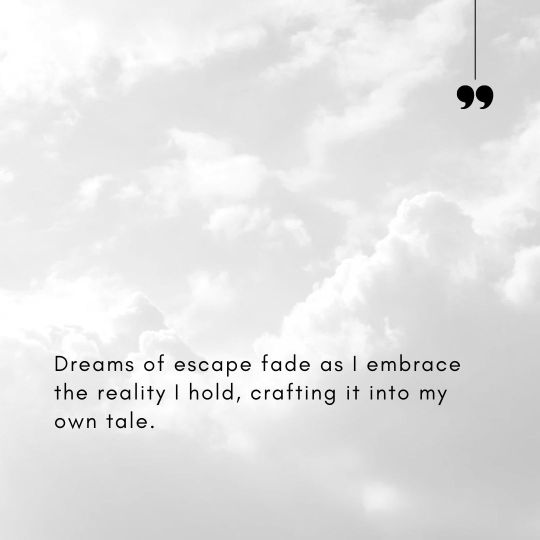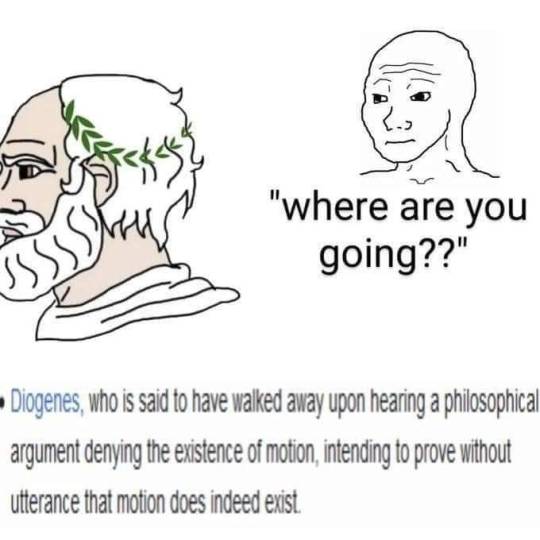#philosophy
Text
the pitiful child I used to be is still at play in these woodlands:
screaming & crying, yelling & pleading, for the trauma to end;
& here I am, years later, those marks still etched upon my flesh.
#poetry#spilled thoughts#dark academia#dark prose#trauma#drugs#depression#alchemy#mental illness#art#mental health#spirituality#sad#introspection#liturature#tw#me#voidic3ntity#life is strange#pain#stoned#poets on tumblr#darkness#original#poem#life#death#poetic#philosophy#morbid
86 notes
·
View notes
Text

- A message from 23 nights temple -
“If you really want to live, a mysterious wisdom will emerge.”
-二十三夜堂からのメッセージ-
”どうしても生きようと思えば、不思議な智慧が湧いてくるものです。”
79 notes
·
View notes
Text
"Be still and steady, just as there are no waves in the depths of the ocean. A practitioner must not let the desires of the five senses for anything rise."
Buddha (Sutta Nipata 920)

85 notes
·
View notes
Text
“Disobedience, in the eyes of any one who has read history, is man's original virtue. It is through disobedience that progress has been made, through disobedience and through rebellion.”
— Oscar Wilde
73 notes
·
View notes
Text
Up next on Taylor Swift, you're wrong about...
Can I write about why Swift is wrong about her philosophical understanding of Karma?
Eastern Philosophy is a little bit outside my range, I'm more of an Ancient Greek metaphysics and aesthetics girly- but I did take at least three classes in which I spoke at length about the Hindu philosophical concept of Karma and have read extensively about it. I can, least explain it plainly to those who might not have heard about it before.
Swift seems to be under the impression that the word karma simply means "What goes around comes around" but that is not the case. Her understanding of it is rather shallow and "westernized."
#anti taylor swift#fuck taylor swift#taylor swift critical#philosopher in training dont worry about it#philosophy#eastern philosophy#karma#indian philosophy#hinduism#buddhism
55 notes
·
View notes
Quote
In every period of transition this riff-raff which exists, in every society, rises to the surface, and is not only without any aim but has not even a symptom of an idea, and merely does its utmost to give expression to uneasiness and impatience.
Fyodor Dostoyevsky, Demons
65 notes
·
View notes
Text

"She thinks as I do. I feel as if I had never left her." - Sartre, Nausea
#quotes#life quotes#love quotes#typography#lit#literature#philosophy#nausea sartre#jean paul sartre#relationship#relationship quotes#words#spilled words#words words words#spilled ink#thoughts#i lover her#wlw#yearning hours#yearnposting#situationships#longing#unrequited love#book quotes#dark academia#aesthetic
64 notes
·
View notes
Text
#agere little#10 things i hate about you#zouis#gentleman jack#self ship#f1#anna akana#clara oswald#inthelittlewood#philosophy#gadismelayu#forever21#techno
125 notes
·
View notes
Text
"Political philosophy is found in great books--those by Plato, Aristotle, Locke, Rousseau and others of the highest rank... You should spend much more time with the great authors than with the professors, and you should use the professors to help you understand the great authors; you should not allow yourself to be diverted or distracted from the great books by professors.”
Harvey Mansfield (1932-) American academic.
34 notes
·
View notes
Text

"I'll stay with you while it rains hell but I'll leave once the dust settles, for I fear you'd see what the storm did to me as I held you, and I couldn't do that to you."
#poetry#dark academia#dead poets society#lovecore#love quotes#poem#literature#philosophy#writing#lovers#rain world#rainbow#rainyday#rainymood#romantic academia#literary#love#landscape#clouds#storm#friedrich nietzsche#fyodor dostoyevsky#sylvia plath#lana del rey#hozier#mahmoud darwish#rumi#love quote#qotd#inspiring quotes
51 notes
·
View notes
Quote
Getting an education might be difficult, but it makes life easy. Being uneducated might be easy, but it makes life difficult.
Debasish Mridha M.D.
#quotes#Debasish Mridha M.D.#thepersonalwords#literature#life quotes#prose#lit#spilled ink#debasish-mridha#debasish-mridha-m-d#education#inspirational#philosophy#uneducated
32 notes
·
View notes
Text
& here I am, years later, those marks still etched upon my flesh:
cigarettes in one hand & phone calls to my therapist in the other;
& maybe one day I will survive the things which defiled my bones.
#poetry#spilled thoughts#dark academia#dark prose#trauma#drugs#depression#alchemy#mental illness#art#mental health#spirituality#sad#introspection#liturature#tw#me#voidic3ntity#life is strange#pain#stoned#poets on tumblr#darkness#original#poem#life#death#poetic#philosophy#morbid
34 notes
·
View notes
Note
I'd love to hear about your thesis topic (if you're not already sick to death of talking about it 😂)!
Aa, thank you for reaching out, it's so nice of you to ask!!
I'm definitely not sick of talking about it yet! I suspect that it may be the other way around and people around me are starting to get sick of hearing about it 😅
The topic is broadly a mental health disorder which supposedly plagued early 18th century Britain interpreted through a philosophical lens.
More specifically, there was this physician and philosopher called Bernard de Mandeville, who was one of those people who had thoughts on absolutely every topic imaginable, spanning from economical and social theory to medicine (he was also a huge classics nerd but with people in the 1700s, that probably goes without saying).
Supposedly to gain more patients for his practice, he wrote this wonderfully weird medical treatise on how to deal with hypochondria (the name can be misleading, but back then it referred to an unspecified mental health issue close to our current understanding of depression). It is written in a form of a dialogue between a doctor and a patient, and it discusses various symptoms of the disease as well as practical advice on how to treat it (including some great wine recommendations and seemingly endless quotes from Horace and Ovid for some reason).
One thing that particularly fascinates me about the text is that it shows a kind of proto-therapeutic approach to the treatment of mental health issues and it places a lot of emphasis on the developing relationship between the doctor and the patient. The wife of the hypochondriac who suffers from the same illness as her husband is also present, so at times, I'm attempting to go for a slightly feminist angle (Mandeville was not exactly a feminist but some of his ideas about gender were genuinely progressive for a guy writing in the early 1700s).
I'm writing it under the philosophy department, so I sadly had to minimise the historical context in my actual writing. I did research it however! A lot has been said about how hypochondria characterised British people specifically and how an increasingly easy and comfortable life of the upper-middle class may have paradoxically contributed to it. It's also been linked to philosophers/men of letters since it seemed to have affected this group of people in particular (perhaps most famously David Hume who is my supervisor's number one guy).
The result I ended up with is a bit chaotic, but I genuinely had a ton of fun researching the topic! I got a chance to engage in one of my most favourite things in the world, which I guess could be called amateur psychoanalysis of people from the 18th century.
I've also argued by the end that it is useful to study early modern texts (and by extension all historical texts) since it helps us to see which aspects of the human experience remain unchanged over time. (Spoiler: although wine is no longer recommended as a cure, we don't differ that much from people living three centuries ago in all of the important ways. Most notably, we all need positive interactions with others for our mental well-being and to some extent, we all crave others' approval).
Actually getting it printed soon — then it's just anxiously awaiting feedback and then onto the defense.
Hope my answer is not too long or incoherent and thanks again for asking!
#thesis#thesis era#asks#✨#I can't write concisely I swear#writing an abstract was painful#philosophy#1700s
28 notes
·
View notes
Text

#poets corner#poets on tumblr#quoteoftheday#quotes#poetry#life#feelings#quote of the day#life quotes#poetry quotes#wisdom#words#writers on tumblr#writing#thoughts#spilled thoughts#spilled ink#heartfelt#emotions#poetic#dreams#love quotes#creative writing#philosophy#musings#introspection#introspective#soulful#prose#daily inspiration
25 notes
·
View notes

